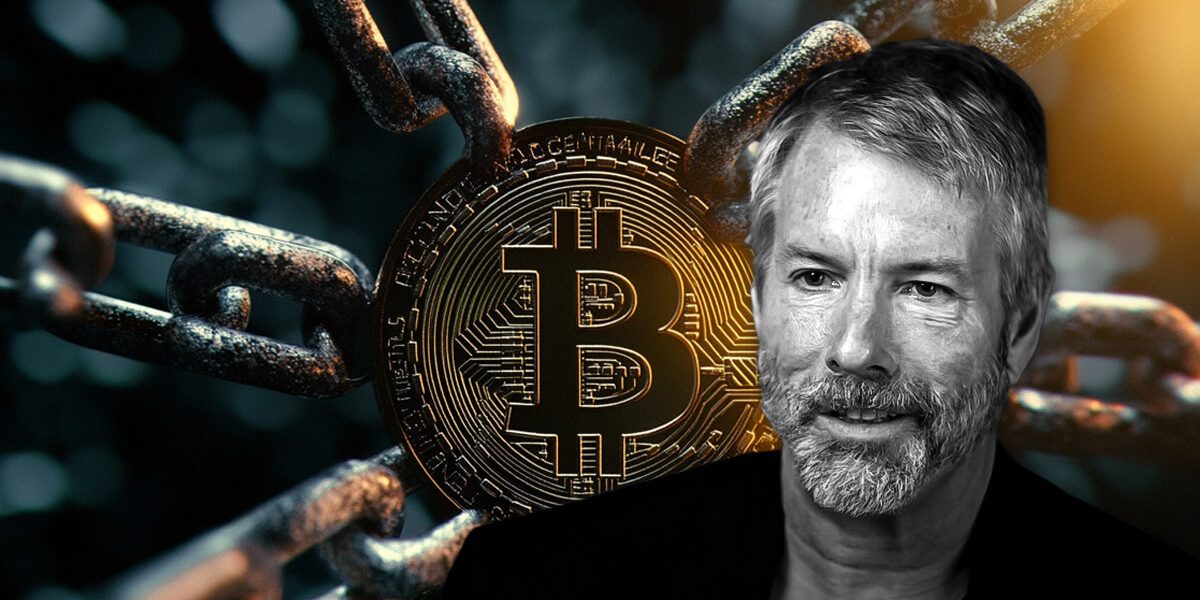

MicroStrategy CEO Michael Saylor has dismissed the idea of a government seizure of Bitcoin as a “trope” while advocating for custodianship through large financial institutions over self-custody.
In a recent appearance on the “Markets with Madison” podcast, Saylor addressed concerns from what he called “paranoid crypto-anarchists” who fear such seizures. He said such individuals often reject regulation, government authority, taxes, and reporting requirements, which increases the risk of seizure.
According to Saylor:
“I think that when the Bitcoin is held by a bunch of crypto-anarchists who aren’t regulated entities — who don’t acknowledge government or don’t acknowledge taxes or don’t acknowledge reporting requirements — that increases the risk of seizure.”
He emphasized that institutional custodians, in contrast, adhere to legal and tax obligations, which he believes reduces the likelihood of government intervention.
Saylor further argued that instead of relying on self-custody methods like hardware wallets, Bitcoin holders would be better served by trusting large, established banks designed to secure financial assets.
He said:
“You have an OG crypto community that’s very hardcore about it, but if you look at where all the money is — 99.9% of the money — is actually in the traditional economy.”
As a long-time Bitcoin supporter, Saylor’s comment surprised many in the community as it goes against the cypherpunk ethos at the heart of crypto. Bitcoin proponents often strongly advocate for self-custody due to the risks associated with centralized authorities and entities.
Bitcoin community slams Saylor
Saylor’s remarks sparked a significant backlash from key figures in the Bitcoin community.
Sina G, co-founder of Bitcoin-focused investment firm 21st Capital, criticized the stance, calling it “spooky” and accused Saylor of becoming “a shill for the government and banking system.”
Sina added:
“Saylor is on a mission to relegate Bitcoin into an investment petrock and halt its usage as a currency.”
Jack Mallers, the founder of Bitcoin Lightning Network payment platform Strike, expressed concern at Saylor’s u-turn, stating,
“Calling self-custody ‘crypto-anarchism’ oversimplifies what Bitcoin accomplishes. It’s about freedom — freedom of speech, property rights, and protecting your right to own what’s yours. We must not dismiss it because freedom isn’t promised — it must be fought for and protected.”
Bitcoin developer Jameson Lopp, co-founder and Chief Security Officer of CasaHODL, added that Saylor’s comments signal a broader divide. He noted that the remarks hint at the next battle for Bitcoin’s future, as those focused on institutional adoption don’t seem concerned about improving the protocol or scaling the network because they don’t prioritize self-custody.
Blockstream CEO Adam Back also commented on the issue by explaining that holding Bitcoin exchange-traded funds (ETFs) is similar to holding shares or a bank balance, which don’t offer true asset protection.
According to Back, a court order can seize an ETF, unlike Bitcoin in self-custody, where courts must follow due process to demand asset handover. He noted:
“Self-custody doesn’t make people immune, it just change the onus so courts have to go through due process and get a judgement.”
Back concluded that self-custody rebalances power toward individual rights by making it harder for governments or institutions to seize assets without proper legal procedures.
Mentioned in this article




